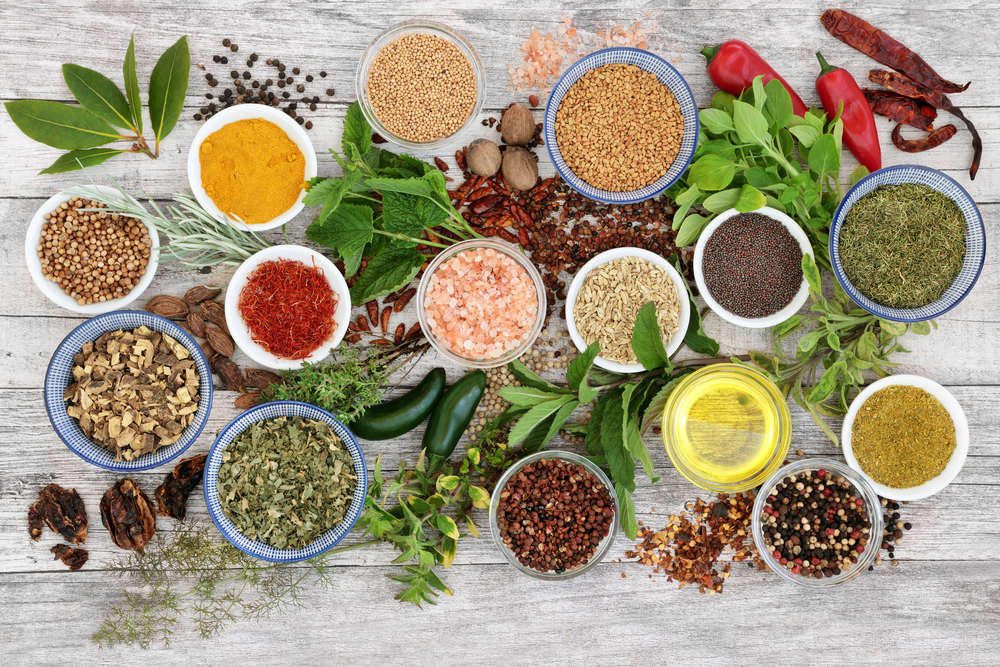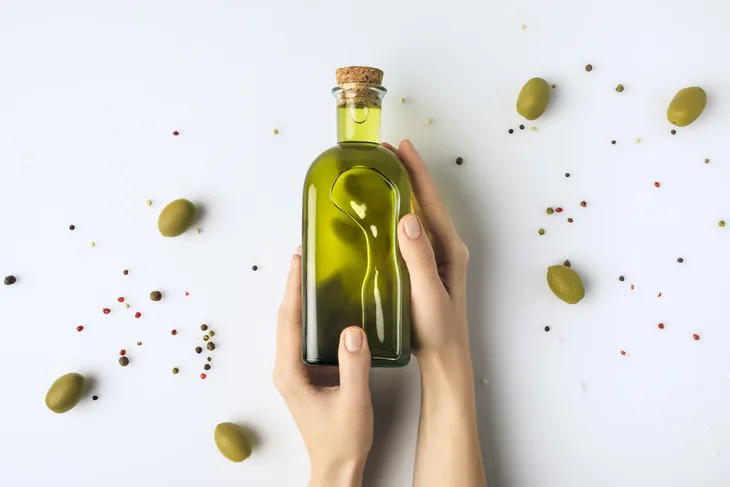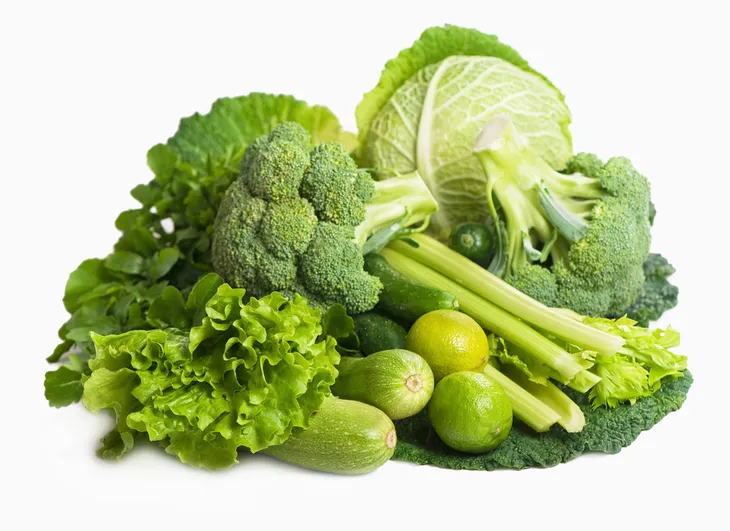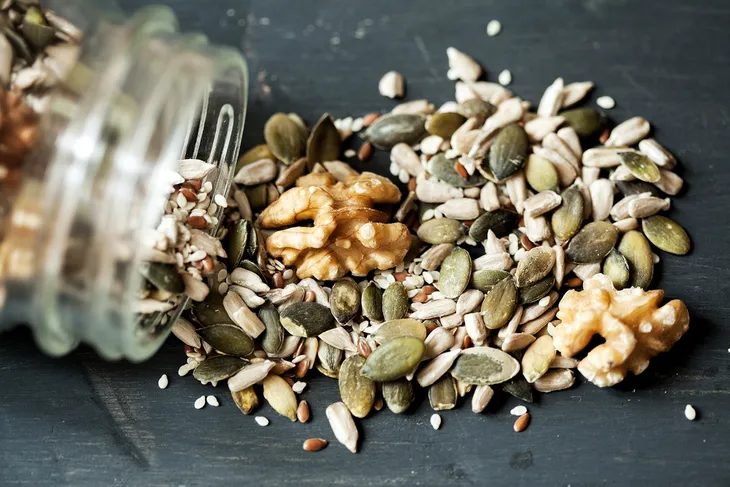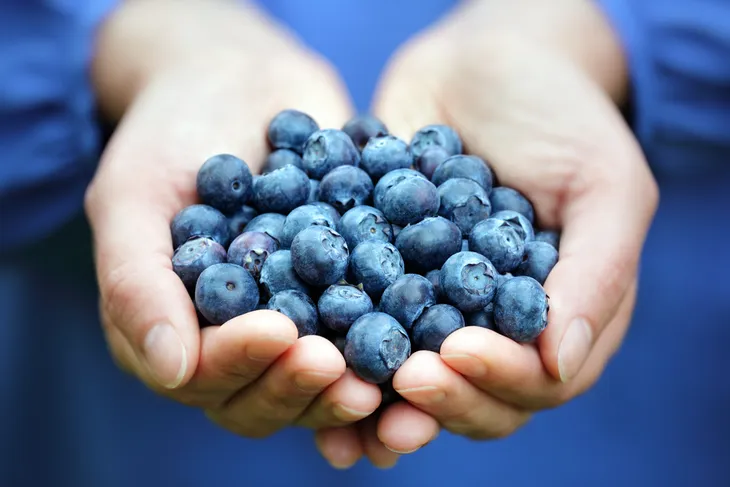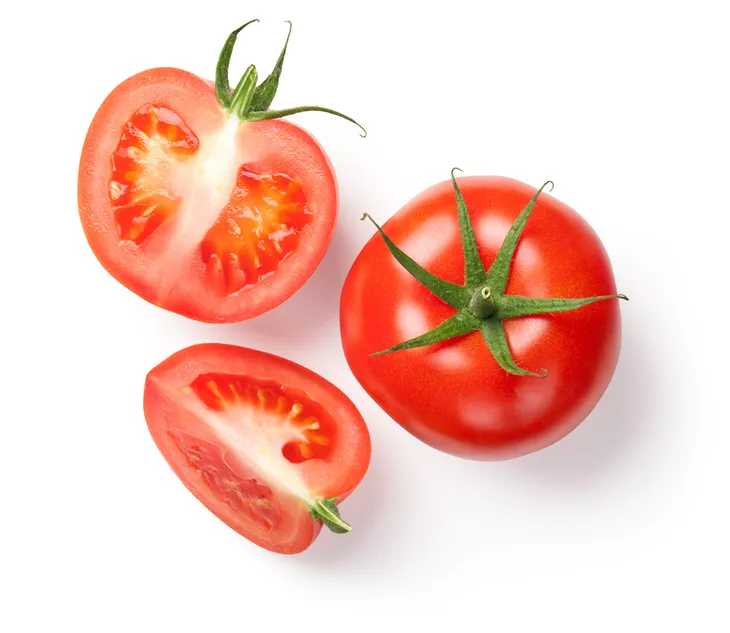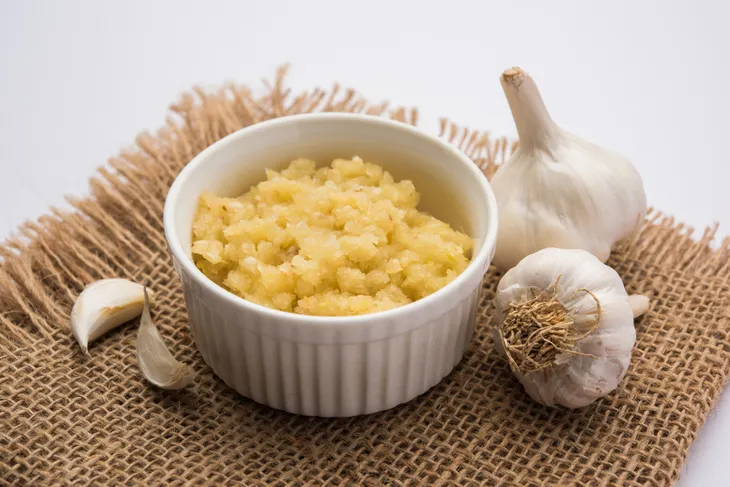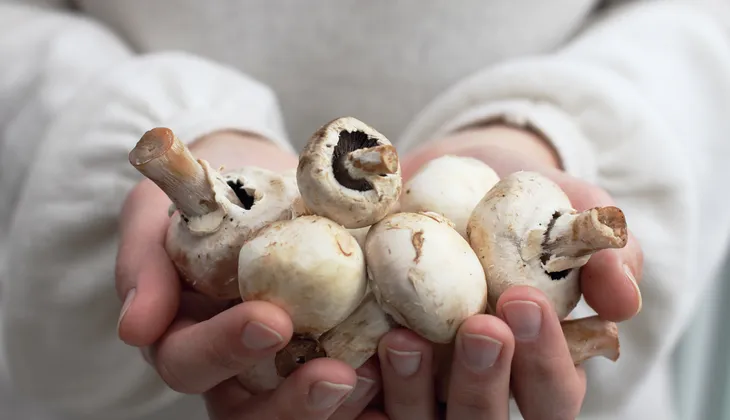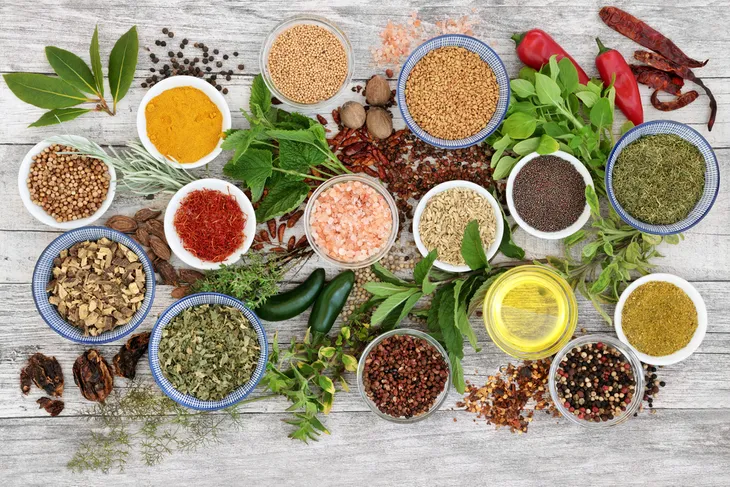Inflammation is a natural immune response which helps the body protect itself from foreign invaders, like bacteria and viruses. Normal inflammation is usually short-lived, lasting only as long as is necessary to resolve the threat. When inflammation becomes chronic, it can cause all manner of harmful effects throughout the body. Chronic inflammation can last for months — or even years.
Nowadays the vast majority of people suffer from chronic inflammation, brought on by too much stress, a sedentary lifestyle, smoking, and a poor diet filled with processed foods.
If it persists over time, inflammation can lead to serious diseases like cancer, heart disease, diabetes, arthritis, and Alzheimer’s. In severe cases, chronic inflammation can lead to autoimmune disease. These diseases occur when the immune system becomes so overactive that it attacks your body’s own cells and tissues. Thankfully, chronic inflammation can oftentimes be managed just by adding more of the following anti-inflammatory foods into your diet.
The Connection Between Diet and Inflammation
While most people are aware that anti-inflammatory drugs can reduce inflammation, few people consider the role of their diet. Just like pharmaceutical medications, the food we eat is made up of chemicals and compounds, which have a biological effect on our bodies. This biological effect influences key processes, including inflammation.
Some foods actively down-regulate inflammation, while others kick it into overdrive. While scientists do not understand all the biological mechanisms behind this phenomenon, recent studies have provided some insight.
Research clearly shows that certain foods increase the levels of an inflammatory marker called C-reactive protein in the blood. This could be an indication that some foods — such as processed sugar — cause a chemical reaction in the gut which stimulates the release of inflammation precursors.
More research into the connection between diet and inflammation is certainly warranted. However, we do know which foods you should eat and which you should avoid to reduce inflammation.
Olive Oil
Olive oil is an extremely healthy fat. One study even demonstrated that the anti-inflammatory effect of extra virgin olive oil is comparable to that of prescribed medications like ibuprofen.
According to Prevention, olive oil contains plenty of polyphenols, which “provide both anti-inflammatory and antioxidant benefits.” One such polyphenol is called oleocanthal, and has been found to “inhibit inflammatory enzymes in the same way that ibuprofen does,” says Reader’s Digest.
In addition to its anti-inflammatory benefits, olive oil—specifically the extra virgin variety—is considered to be a very heart-healthy fat. This is due to its high oleic acid content, which Prevention indicates “has been found to help lower blood pressure, reduce LDL (bad) cholesterol, and increase HDL (good) cholesterol.”
Green Leafy and Cruciferous Vegetables
You can add ‘fights inflammation’ to the list of reasons to eat more green leafy vegetables, such as spinach, kale, and Swiss chard. These foods are rich sources of vitamin E, which Health.com says “may be key in protecting the body against pro-inflammatory molecules called cytokines.”
Cauliflower, broccoli, brussel sprouts, and kale are all cruciferous vegetables, packed with powerful anti-inflammatory properties. According to Healthline, broccoli is a valuable source of sulforaphane, “an antioxidant that fights inflammation by reducing your levels of cytokines and NF-kB, which drive inflammation.”
Broccoli may be particularly good at fighting inflammation, as it appears to mitigate the release of inflammatory precursors called cytokines. Scientists believe this is the result of an anti-inflammatory substance called sulforaphane, in which broccoli is extremely rich.
Nuts
Not only are nuts and seeds rich sources of protein and omega-3 fatty acids, but they also contain plenty of anti-inflammatory properties. Walnuts, for example, are high in rare antioxidants like juglone, which “help scavenge and neutralize rogue pro-inflammatory free radicals,” says Ann Kulze, M.D., in speaking with Men’s Fitness.
When it comes to seeds, Dr. Axe says, “Chia are an antioxidant, anti-inflammatory powerhouse.” They contain myriad vitamins and minerals, as well as essential fatty acids like alpha-linolenic and linoleic acid, making them able to “reverse inflammation, regulate cholesterol and lower blood pressure.”
Fatty Fish
Fatty fish—such as salmon, sardines, mackerel, anchovies, and herring—are rich sources of omega-3 fatty acids, which the Arthritis Foundation says “reduce C-reactive protein (CRP) and interleukin-6, two inflammatory proteins in your body.”
Several studies have shown than these long-chain fatty acids can dial back inflammation and reduce the risk of heart disease, kidney disease, and diabetes. This is likely due to two types of anti-inflammatory compound called protectins and resolvins, which are produced when fatty acids break down.
The omega-3s in fatty fish can also help to reduce the pain associated with inflammation. According to Reader’s Digest, a study out of the University of Pittsburgh found that “people with back and neck pain who took omega-3 fatty acids in supplement form for three months had less pain overall.” To achieve these benefits, the source recommends eating fatty fish twice per week, as well as taking an omega-3 supplement.
Fruit
When it comes to fruits with anti-inflammatory properties, there are plenty to enjoy! Berries like strawberries, blueberries, raspberries, and blackberries are rich in antioxidants called anthocyanins, which Healthline says “have anti-inflammatory effects that may reduce the risk of disease.” Better yet, consuming these berries appears to increase production of immune-regulatory cells called Natural Killer cells. Dark-colored berries have also been shown to increase blood flow and protect cardiovascular health.
Both the flesh and rind of citrus fruits—such as orange, grapefruits, lemons, and limes—are beneficial because as well due to their flavonoids, which Prevention indicates “neutralize free radicals, potentially preventing the growth of cancer cells.” Also, in pineapple, the enzyme bromelain has been found to reduce inflammation and pain in people with knee osteoarthritis, rheumatoid arthritis, and carpal tunnel syndrome.
Tomatoes
In addition to being an excellent source of vitamin C and potassium, tomatoes are also rich in the antioxidant lycopene, which Healthline says has “impressive anti-inflammatory properties.” People who consume large amounts of lycopene also have a lower risk of developing several types of cancer. The compound is known to be particularly effective in reducing the risk of testicular cancer in men.
Particularly, the source indicates it may be beneficial for “reducing pro-inflammatory compounds related to several types of cancer.” But to maximize their anti-inflammatory benefits, Health.com says that eating them cooked (such as in tomato sauce or in olive oil) is better than raw.
Garlic and Onions
Not only do garlic and onions pack a flavor punch, but they’ve also been dubbed “anti-inflammatory superstars”—and for good reason. Garlic, Health.com explains, contains organosulfur compounds, which “may lower the production of substances in the blood that boost inflammation.” It is most beneficial when eaten raw, however, so try adding it to salads, salsas, or guacamole.
And onions contain the flavonoid quercetin, which the source says “helps inhibit inflammation-causing agents at play in arthritis,” especially in red onions, yellow onions, and shallots.
Mushrooms
Mushrooms are widely regarded as a “superfood” due to the nutrient density found in most edible species. Mushrooms are a great source of B-vitamins, copper, and selenium, which are essential for many bodily processes. They also contain a variety of anti-inflammatory antioxidants and phenols, which inhibit the release of cytokines in the gut.
Portobello mushrooms, shitake mushrooms, and lion’s mane have all demonstrated anti-inflammatory properties during testing. It is worth noting that mushrooms tend to lose some of their anti-inflammatory compounds during cooking, so it is best to cook them lightly or consume them raw.
Herbs and Spices
Certain herbs and spices also help to combat chronic inflammation. Turmeric – a bright orange spice frequently used in Indian cooking – for instance, contains a substance called curcumin, which Health.com says “helps to turn off NF-kappa B, a compound that’s integral to triggering the process of inflammation.” Curcumin has been shown to improve symptoms for people suffering with diabetes, arthritis, psoriasis, and a variety of other chronic diseases. Turmeric can be used in cooking or taken as a food supplement in a capsule.
Turmeric’s cousin ginger has been used to reduce inflammation for thousands of years. Whether consumed fresh, dried, or as a supplement, Dr. Axe says “ginger is so effective at warming the body, it can help break down the accumulation of toxins in your organs,” in addition to cleansing the body’s lymphatic system.
Foods to Avoid on an Anti-Inflammatory Diet
Base your anti-inflammatory diet around the foods listed above, along with plenty of whole plant foods like grains and pulses.
At the same time, you want to try and limit your intake of foods which promote inflammation. Some of the worst culprits are:
- Refined grains
- Sugar and high-fructose corn syrup
- Red meat
- Processed meat
- Alcohol
Try not to beat yourself up if you fall off the wagon and eat something you shouldn’t have. Making sustainable dietary changes is not about getting everything right straight away. If you need help putting together a meal plan, consider meeting with a consultation with a certified nutritionist.
